“If the government tells you to work, you go.” — Uyghur laborer, Aksu, China.1
People belonging to ethnic, cultural, and religious groups in northwestern China, including Uyghurs, Kazakhs, Kyrgyz, and Hui, are currently the target of the largest organized detention of an ethno-religious minority the world has seen since World War II. Since 2017, over one million have been detained.2
Detainees are made to work under constant surveillance, with assigned minders and no freedom to leave. Their forced labor contributes to the production of goods for numerous multinationals.
The native people of Xinjiang Uyghur Autonomous Region, Northwest China—known to locals as East Turkistan—are largely from Turkic ethnic groups. Ethnically and culturally distinct from China’s majority Han population, most Uyghurs, Kazakhs, Kyrgyz, and Hui are Muslim, and their languages—with the exception of the Hui—are unrelated to Mandarin and Cantonese. They have long been persecuted for their ethnicity by the government, which has repressed their language, religion, and culture, along with settling millions of Han Chinese in the Uyghur Region. Racial discrimination against Muslims is commonplace.3
In recent years, however, the government’s efforts to oppress and forcibly assimilate people from Turkic and Muslim-majority ethnic groups, like Uyghurs, have expanded dramatically.
Detention camps and forced labor
Survivor accounts, leaked official documents and satellite imagery confirm that the Chinese government is subjecting hundreds of thousands of Uyghurs, Kazakhs, Kyrgyz, Hui, and other Turkic and Muslim people to systematic forced labor in detention camps, prisons, and factories. 4 Forced loyalty to the Communist party, renunciation of Islam, constant surveillance, and torture are among the other horrifying conditions that they face.5 Experts argue that forced labor is now so widespread in the Uyghur Region that all goods produced there should be considered tainted.
Few detainees are charged with any crime but rather are targeted simply for practicing their Muslim faith. 6 The UN Committee on the Elimination of Racial Discrimination states that Muslim minorities are now “treated as enemies of the State based on nothing more than their ethnoreligious identity.”7 Analysts have argued that the Chinese government’s use of forced labor as part of an effort to forcibly assimilate an ethnic group and eliminate culture and religion sets it apart from more common forms of forced labor and could make the government guilty of crimes against humanity. 8 Some have even described the government’s actions as cultural genocide. 9
The complex Uyghur forced labor system
The forced labor of Uyghurs and other people from Turkic or mainly Muslim ethnic groups has become a significant part of the Chinese economy. A complex system of buying and selling their labor has developed, with many brokers and local officials advertising “government sponsored workers” online. 10
Reports have revealed that the forced labor of Uyghurs has been expanded beyond the Uyghur Region, with at least 80,000 Uyghurs transferred to factories across China where they cannot leave, are constantly surveilled, and must undergo “ideological training” to abandon their religion and culture.11
Countless big companies profiting from forced labor
Countless Western companies are also profiting from this system of forced labor in their supply chains. Over 20 percent of the global apparel’s cotton supply is grown in Uyghur Region,12 with 84 percent of China’s supply grown in the province. Recent reports implicate at least 83 companies in numerous different industries, in profiting from the forced labor.
- The Huafu Fashion Co. mill in Aksu, Xinjiang Uyghur Autonomous Region, claims to make yarn that eventually finds its way into clothes for Western fast fashion brands. More than 4,000 Uyghurs work there in isolation and under strict “military-style management,” as stated by the local human resources bureau. 13
- The Qingdao Taekwang Shoes Co. Ltd. in Laixi City, Shandong, is one of the world’s largest manufacturers of a major sneaker company. As of 2020, around 600 Uyghur people worked in the factory. These workers did not come by choice, are forbidden from leaving, and cannot practice their religion. Photographs of the factory show watchtowers, razor wire, and inward-facing barbed wire fences. 14
- A local government document from September 2019 reported that 560 Xinjiang laborers were transferred to work in factories in central Henan province—including a Foxxcon Technology Co. Ltd. facility in Zhengzhou. Zhengzhou is known locally as ‘iPhone city’ because half of the world’s iPhones are reportedly made there. 15
The problem with Shein
Numerous reports have linked fast fashion giant Shein to unethical business practices, including worker exploitation, copyright infringement, and environmental harm. Recently, laboratory tests ordered by Bloomberg found that some of Shein’s cotton was sourced from the Uyghur Region. 16
That’s why we have an action for you to write to Shein and join a massive worldwide movement pressuring the company to do better.
Skechers is “too busy” to stop forced labor
Skechers’ supplier, Dongguan Oasis Shoes Co., Ltd., has been flagged by the U.S. Department of Homeland Security for suspected use of Uyghur forced labor. Instead of cutting ties, Skechers stated that this would have no “material impact” on its business and opened new stores in the Uyghur Region. When contacted about their business presence in the region, Skechers’ vice president of
corporate communications was reportedly “too busy to deal with that right now.”17
So,we’ve launched a new action for you to take against Skechers.
Driving forced labor
According to the report ‘Driving Force: Automotive Supply Chains and Forced Labor in the Uyghur Region,’ practically every car part requires heightened scrutiny to ensure that it is not linked to Uyghur forced labor. The report implicates over 100 car companies, including Volkswagen, Toyota, Stellantis, Mercedes-Benz, Ford, General Motors, Honda, Tesla, Nissan, and BYD. 18
You can tell the ten biggest car companies in the world that they must put people over profits and cut ties with the Uyghur forced labor system.
Not so “clean” energy
In May 2021, through the Coalition, we released an academic report conducted by researchers at Sheffield Hallam University that revealed the shocking fact that almost the entire global solar panel industry is implicated in the Uyghur forced labor system. 19 Almost half of the world’s solar-grade polysilicon supply, a primary material in solar panel production, is sourced from the Uyghur Region. Further, the world’s four largest solar panel suppliers all source polysilicon from manufacturers implicated in the Uyghur forced labor system.
You can take action to tell world leaders that clean energy must be free of forced labor.
Apple doesn’t walk the talk
You can write directly to Tim Cook, CEO of Apple Inc. While Mr. Cook last year told US Congress that “forced labor is abhorrent,” several current Apple suppliers operating in China have been implicated in the Uyghur forced labor system.20 Additionally, the New York Times reported in November 2020 that disclosure forms showed that Apple paid lobbyists $90,000 to “educate policymakers” in an effort to soften the language of the Uyghur Forced Labor Prevention Act which is currently before the U.S. Senate. 21 Apple explained that they proposed “suggested edits to make the bill more clear and we believe more effective.” 22
Apple has also been supplied employee uniforms as recently as June 2020 by the Esquel group, which was sanctioned in 2020 by the U.S. government over forced labor at a subsidiary firm in the Uyghur Region. 23 Apple keeps saying it has “zero tolerance” for forced labor so why do they continue to work with companies implicated in modern slavery?
Not so fashionable forced labor clothing brands
Through garment supply chains, the entire fashion industry, including products sold by Western brands, is potentially tainted. We are calling on leading brands and retailers to ensure that they are not supporting or benefiting from this pervasive and extensive system of forced labor.24
You can write directly to Nike, Uniqlo, and Zara. These are three of the world’s biggest clothing brands by revenue,25 and each comes from a different region of the world: North America, Asia, and Europe, respectively.
Nike, Uniqlo, and Zara, like almost all companies, claim to prohibit forced labor in their supply chains, yet offer no credible explanation as to how they can do this considering their links to a region where all goods are likely to be tainted by forced labor. By continuing to operate in and maintain links to the region, fashion brands like these are complicit in what many have widely recognized as crimes against humanity.
An Olympic sized blind spot
The official sportswear uniform supplier of the International Olympic Committee (IOC), Anta Sports, is among many apparel companies around the world that source cotton from the Uyghur Region. In March 2021, Anta Sports defiantly declared: “We have always bought and used cotton produced in China, including Xinjiang cotton, and in the future we will continue to do so.” 26
The Coalition engaged the IOC privately for eight months in 2021 to seek information and assess assurances about due diligence steps that the IOC may have taken to ensure that Olympic-branded merchandise is not made with Uyghur forced labor. On December 21, 2021, the IOC rejected the Coalition’s proposed terms for substantive, constructive, and mutually respectful two-way dialogue. 27 The Olympics may be over but you can still let the IOC know that we’re watching them and their blind spot when it comes to human rights.
Join the movement
The Chinese government has defended the camps where cotton and garments are produced as voluntary “vocational training centers” that serve to provide professional opportunities and eliminate extremism.28 But the stories above are just some of the mounting evidence that reveals this system of modern slavery for what it is.
We have the power to push for change. Although the Chinese government continues to deny any wrongdoing, we can draw attention to the issue and put pressure on them to end the use of forced labor. Western governments and corporations must end their involvement in implicated factories. By making it neither economically nor politically advantageous for the Chinese government to continue its current treatment of these people, we can make a difference.
There is a growing movement calling for these changes, and now we have ample evidence to argue for it. Some officials in the U.S. government and around the world have already started calling for laws banning imports from the Uyghur Region. Some companies have cut ties with their factories in the Uyghur Region, while others have pledged to investigate their supply chains. Let’s take advantage of this momentum and use our voice as civil society to cement real change.
Call out Shein! Sign the petition telling the ten biggest car companies to put people before profits! Call for forced labor-free solar power! Write to Apple and fashion brands. Write to Urban Outfitters. Read Rahima’s story.
Freedom United denounces prejudice against people based on their ethnicity, perceived or otherwise, which has increased due to the COVID-19 pandemic’s links to China.
Notes:
- https://www.wsj.com/articles/western-companies-get-tangled-in-chinas-muslim-clampdown-11558017472 ↩
- https://www.csis.org/analysis/connecting-dots-xinjiang-forced-labor-forced-assimilation-and-western-supply-chains ↩
- https://www.bbc.com/news/world-asia-china-22278037 ↩
- https://www.nytimes.com/2018/12/16/world/asia/xinjiang-china-forced-labor-camps-uighurs.html ↩
- https://www.cfr.org/backgrounder/chinas-repression-uighurs-xinjiang ↩
- https://www.cfr.org/backgrounder/chinas-repression-uighurs-xinjiang ↩
- https://www.ohchr.org/EN/NewsEvents/Pages/DisplayNews.aspx?NewsID=23452&LangID=E ↩
- https://www.ushmm.org/genocide-prevention/blog/simon-skjodt-center-director-delivers-remarks-on-chinas-systematic-persecut ↩
- https://foreignpolicy.com/2018/09/19/china-has-chosen-cultural-genocide-in-xinjiang-for-now/ ↩
- https://s3-ap-southeast-2.amazonaws.com/ad-aspi/2020-03/Uyghurs%20for%20sale_UPDATE-06MAR.pdf?TJHUQi1T50fUpbjD9zKRLeutM8wuWxpv#page=24 ↩
- https://www.aspi.org.au/report/uyghurs-sale ↩
- https://www.gujcot.com/upload_files/news/Jernigan%20Global%2022-July-2019.pdf ↩
- https://www.wsj.com/articles/western-companies-get-tangled-in-chinas-muslim-clampdown-11558017472 ↩
- https://www.washingtonpost.com/world/asia_pacific/china-compels-uighurs-to-work-in-shoe-factory-that-supplies-nike/2020/02/28/ebddf5f4-57b2-11ea-8efd-0f904bdd8057_story.html ↩
- https://www.aspi.org.au/report/uyghurs-sale ↩
- https://www.freedomunited.org/news/shein-source-uyghur-cotton/ ↩
- https://www.rfa.org/english/news/uyghur/rights-groups-blast-skechers-store-xinjiang-10112024175448.html ↩
- https://www.shuforcedlabour.org/drivingforce/ ↩
- https://www.shu.ac.uk/helena-kennedy-centre-international-justice/research-and-projects/all-projects/in-broad-daylight ↩
- https://www.aspi.org.au/report/uyghurs-sale ↩
- https://www.washingtonpost.com/technology/2020/11/20/apple-uighur/ ↩
- https://enduyghurforcedlabour.org/wp-content/uploads/sites/44/Response-by-Apple.pdf ↩
- https://www.theguardian.com/technology/2020/aug/10/apple-imported-clothes-from-xinjiang-firm-facing-us-forced-labour-sanctions ↩
- https://enduyghurforcedlabour.org/call-to-action/ ↩
- https://www.mckinsey.com/~/media/McKinsey/Industries/Retail/Our%20Insights/The%20state%20of%20fashion%202020%20Navigating%20uncertainty/The-State-of-Fashion-2020-final.ashx ↩
- https://www.axios.com/olympic-uniform-supplier-anta-xinjiang-cotton-438a046b-ac3e-4a85-8379-2954ddfbe2d2.html ↩
- https://www.wsj.com/articles/olympic-committee-becomes-latest-target-in-standoff-over-treatment-of-uyghurs-11641324698?st=ywrhzihi9qbujq3&reflink=article_email_share ↩
- https://www.cfr.org/backgrounder/chinas-repression-uighurs-xinjiang ↩


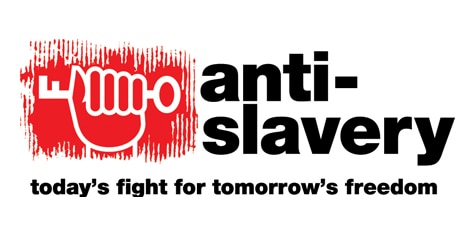
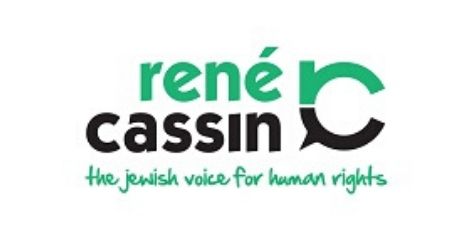

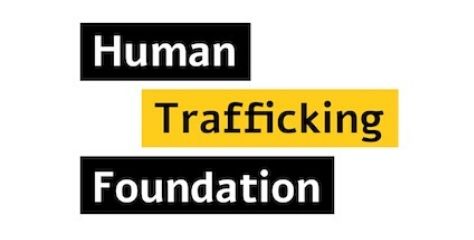
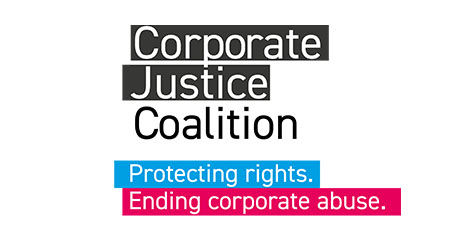
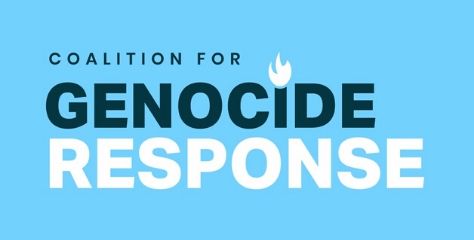
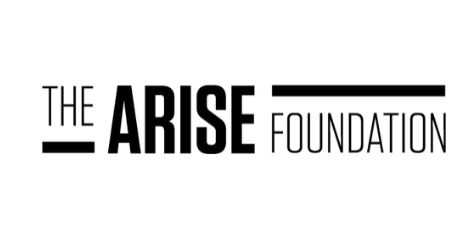
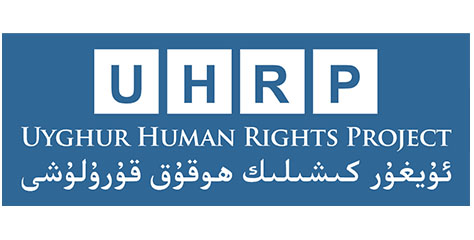
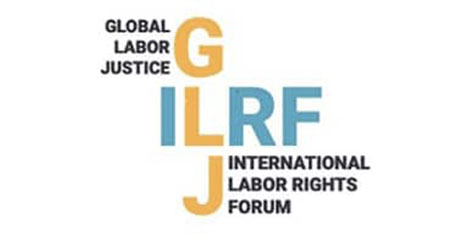

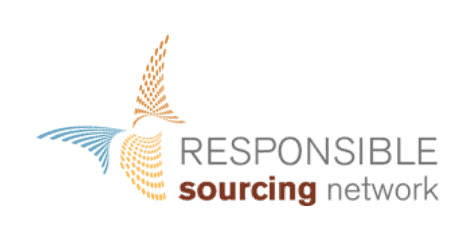




Make your voice heard
Comment
231
Share this petition